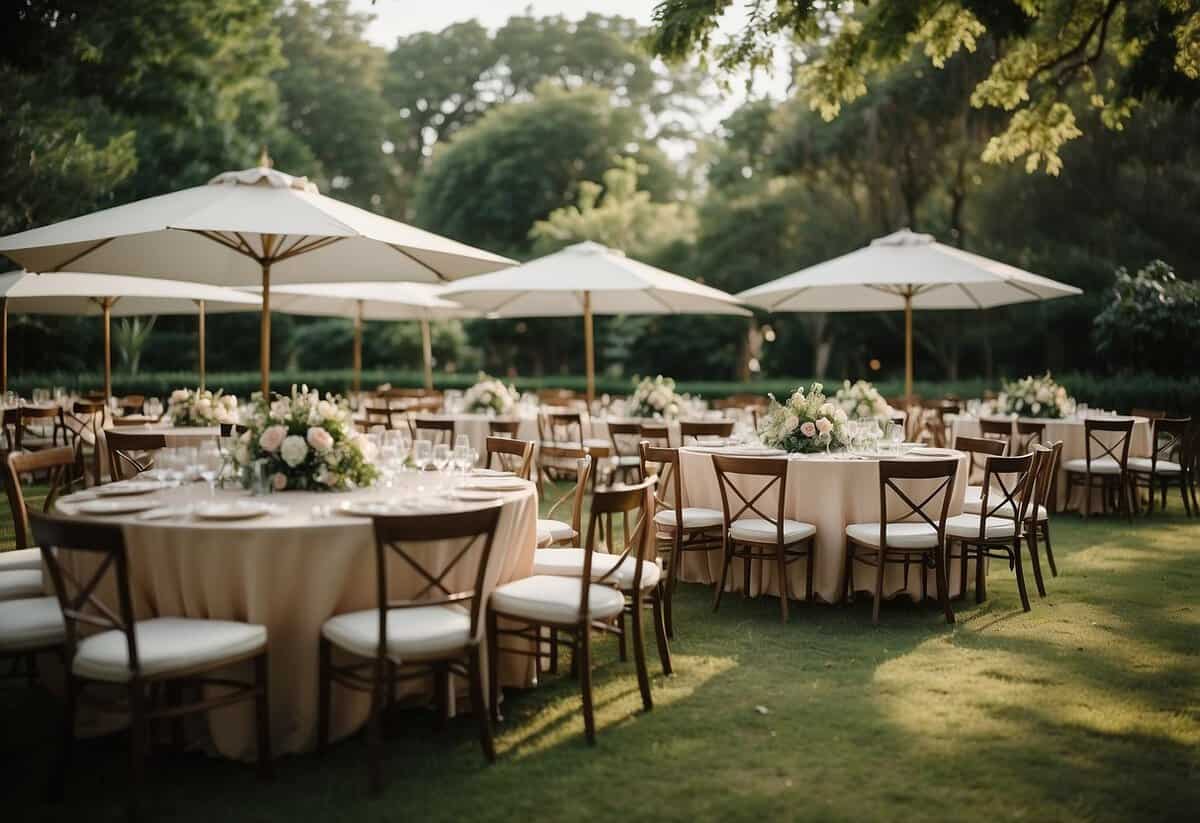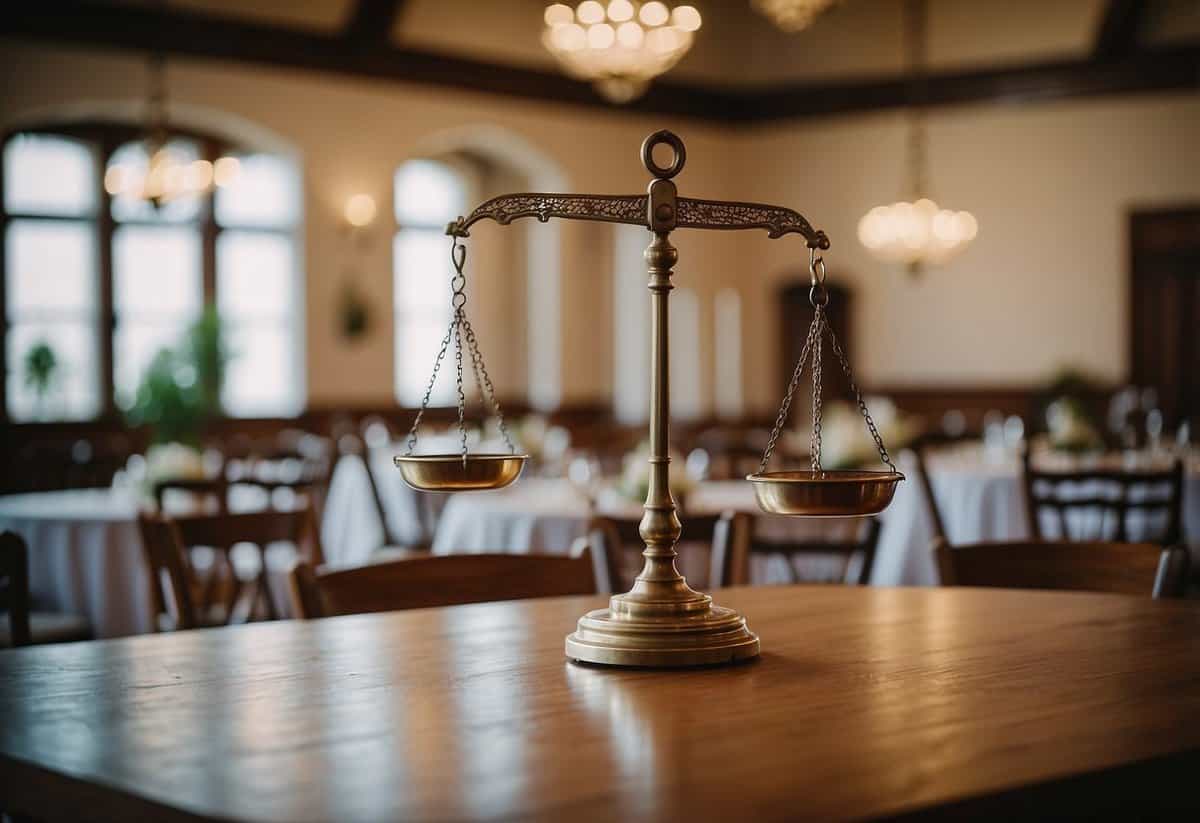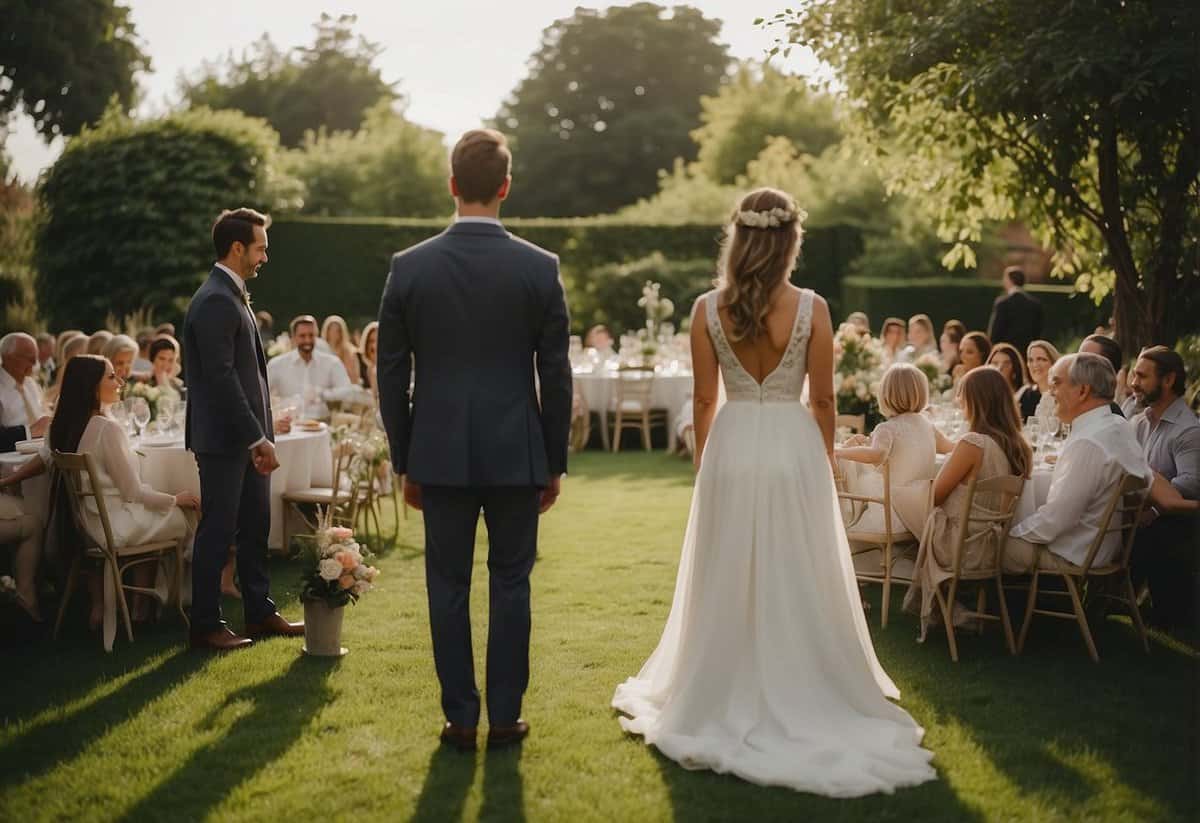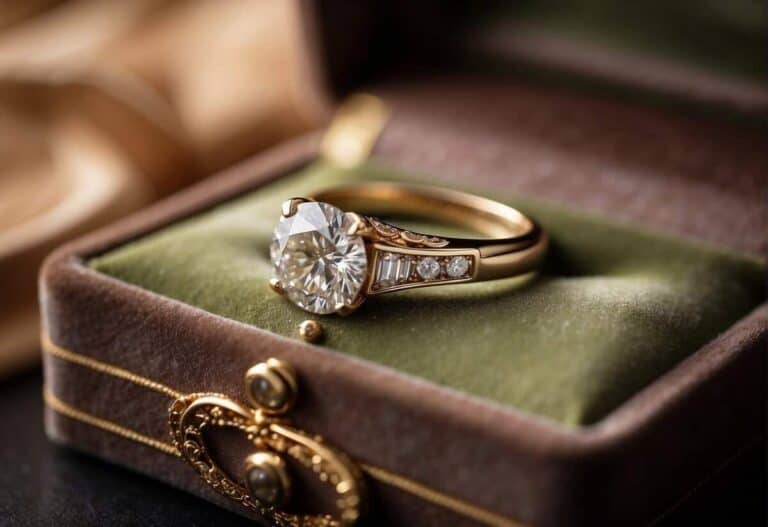Is It Better to Have a Small or Big Wedding? Finding the Perfect Celebration
Deciding between a big wedding or a small wedding can feel overwhelming. Your wedding day is one of the most important moments in your life, and you want everything to be perfect. Both big and small weddings come with their own set of advantages and challenges. Ultimately, the best choice depends on your personal preferences and the experience you wish to have.

In a big wedding, you’ll have the opportunity to invite everyone you know. This means a lively atmosphere with plenty of well-wishers, making the day feel grand and unforgettable. If you love being surrounded by a large group, a big wedding might be the way to go. On the other hand, a small wedding can provide a more intimate and relaxed environment. You’ll get to spend quality time with each guest, creating special memories with your closest friends and family.
The size of your wedding also impacts the planning process. Larger weddings may offer fewer venue options and can be more expensive, but they guarantee a memorable celebration with many helping hands and grand plans. Smaller weddings may simplify planning and offer more flexibility with venues. Whether you choose a big wedding or a small wedding, what matters most is celebrating love and starting a new journey with your partner.
Understanding Wedding Sizes

When planning a wedding, the size of your event plays a crucial role. It affects the venue, budget, and overall atmosphere of your special day. Here’s a detailed look at small and big weddings, historical trends, and their cultural significance.
Defining Small and Big Weddings
A small wedding typically includes 50 or fewer guests. These intimate gatherings allow you to focus more on each guest. You may find it easier to manage and plan since fewer people are involved. Small weddings are also known for being more affordable as you’ll spend less on food, drinks, and venue rental.
In contrast, a big wedding generally has over 150 guests. This can mean grander venues and larger budgets. Such events can offer a festive atmosphere and the chance to invite extended family and a wider circle of friends. More people also mean more varied interactions and memories.
Historical Trends in Wedding Sizes
In the past, small weddings were more common, largely due to budget constraints and simpler lifestyles. Families often celebrated in backyards or local community centers. As economies grew, so did the sizes of weddings. The post-World War II era saw a rise in larger wedding celebrations, as people sought to indulge in life’s pleasures after years of hardship.
Nowadays, there’s a mix. Some couples prefer the personal touch of small weddings, while others opt for the grandeur of big weddings. The choice often reflects personal preferences and financial considerations.
Cultural Significance of Wedding Size
In many cultures, big weddings are seen as a sign of prosperity and social status. These celebrations can showcase cultural traditions, elaborate ceremonies, and a wide array of guests. For some, a large wedding is a way to honor extended family and community ties, making it a significant social event.
Small weddings often carry a different kind of significance. They can symbolize close-knit relationships and a focus on meaningful interactions. In some cultures, smaller weddings can emphasize simplicity and modesty, aligning with certain values and beliefs.
Understanding these aspects can help you decide what size wedding best fits your vision and circumstances.
The Financial Aspect

Choosing between a small or big wedding can greatly impact your budget. Let’s explore how costs differ, how you can budget, and what hidden expenses to look out for.
Comparing Costs
Big weddings generally come with higher costs. Venues often charge more for larger guest lists. Catering, decorations, and entertainment also scale with guest count. For instance, a wedding with 150 guests will require a bigger venue and more food, increasing expenses.
On the other hand, small weddings can save you money. Fewer guests mean fewer invites and less food. This can also give you more flexibility in choosing unique venues that may have strict capacity limits for big weddings. Keep in mind, small weddings might have minimum spend requirements.
Budgeting for Your Wedding
Setting a budget is crucial. Start by listing all possible expenses such as the venue, catering, attire, and entertainment. Allocate funds based on what’s important to you. You might prioritize a beautiful location over an expensive meal.
Use a spreadsheet to track your spending. This helps you stay on budget and avoid surprises.
Consider setting aside an emergency fund for unforeseen costs. Sticking to your budget will make your wedding stress-free and enjoyable.
Hidden Expenses
Wedding costs often include hidden expenses. For big weddings, expect extra costs like additional seating, larger floral arrangements, and a bigger cake. Sometimes, even the smallest details like more wedding favors add up.
Small weddings aren’t immune to hidden expenses either. Think about travel costs if you choose a remote or unique venue. Additional fees for permits, rentals, or specialized services like a live musician can also arise.
Always ask your vendors for a complete breakdown of costs. This transparency helps you prepare for expenses you might not have initially considered.
By understanding these financial aspects, you can better plan and enjoy your special day without unexpected financial stress.
Logistical Considerations

When planning your wedding, logistics play a crucial role in ensuring everything runs smoothly. Two key logistical aspects to consider are venue selection and guest list management.
Venue Selection
Choosing the right venue is vital. Start by thinking about the atmosphere you want—something grand or more intimate. The number of guests will greatly influence your options. Large weddings need venues with ample space for dining, dancing, and mingling.
Consider availability when making your decision. Popular venues book up quickly, so it’s smart to secure your date early. Think about amenities too, like in-house catering, parking, and accommodation for guests.
Outdoor venues come with their own set of issues. Weather can be unpredictable, so always have a backup plan. Indoor venues often offer more predictability but might require more decoration to achieve your vision.
Guest List Management
The size of your guest list affects nearly every detail. Small weddings are more intimate, allowing you to spend quality time with each guest. This can make the event feel more special and personal. They are also often easier to manage and require fewer logistical considerations, such as less seating and fewer table decorations.
Large weddings mean inviting more people, which can create a festive atmosphere but also adds complexity. You will need to think about more invitations, a larger space, and possibly more intricate seating arrangements.
Making a detailed list of guests early can help you manage these tasks effectively. Use digital tools to track RSVPs and communicate with guests. This will help keep everything organized and reduce the chance of overlooking anyone.
The Social Experience

Your wedding’s social dynamic can shape the whole event. While a big wedding offers a broad social atmosphere, a smaller wedding nurtures closeness and intimacy among guests.
Dynamics With Family and Friends
A big wedding allows you to invite distant relatives and a wide circle of friends. This can reduce the chance of leaving someone out and helps avoid uncomfortable conversations about invites. You’ll create a lively atmosphere with a high energy level as more people join in the celebration.
However, a small wedding focuses more on close friends and immediate family. You might find this setting minimizes stress as you won’t have to juggle many social obligations. Close interactions become more meaningful, fostering deeper connections.
Creating an Intimate Atmosphere
Choosing a small, intimate wedding can give your event a personal touch. The limited guest list lets you spend quality time with each attendee, enhancing their experience. An intimate setting can lead to heartfelt moments, making your day feel special and memorable.
On the other hand, a big wedding might sacrifice some intimacy but offers grandeur and excitement. The celebratory atmosphere is amplified with more people, creating a sense of grand occasion. Each choice offers unique emotional experiences for both you and your guests.
Opportunities for Guest Interaction
At a large wedding, guests have more opportunities to mingle with various people. This can be great for forming new friendships or reconnecting with long-lost relatives. The diverse crowd can make for an enriching social experience with many different interactions.
In contrast, a small wedding encourages deeper interactions among guests. Everyone has a chance to engage in meaningful conversations, fostering a sense of community. Close friends and family are more likely to feel closely connected, making your wedding day socially warm and inviting.
Whether you choose a big or small wedding, think about the kind of social dynamic you want to create. Both types of weddings offer different ways to connect with your guests, contributing to the overall atmosphere and memories of your special day.
Emotional and Personal Perspectives

Your wedding day is one of the happiest days of your life, but deciding between a big or small wedding can shape the emotions and personal experiences you will cherish. Let’s explore some key factors like stress, personalization, and memories.
Stress and Anxiety Factors
Planning any wedding can bring stress, but the scale of the event can significantly impact anxiety levels. A big wedding may involve more logistical challenges, from coordinating numerous vendors to accommodating a large guest list. This can lead to increased pressure and stress.
In contrast, a small wedding tends to be simpler. Fewer guests and less complexity in planning can reduce anxiety, allowing you to focus on enjoying the day with your partner. Couples often feel more at ease knowing they are surrounded by primarily close friends and family.
The size of your wedding can impact how you feel leading up to and during your wedding day. Choosing a setting that makes you feel comfortable and happy is crucial for reducing stress.
Personalization and Detail
A small wedding allows for greater personalization. You have the opportunity to add detailed touches that reflect your personality and wishes. Whether it’s a custom menu or unique decorations, smaller events make it easier to include meaningful elements.
Big weddings, while grand, often require a more standardized approach due to the scale. It can be harder to implement detailed personal touches when catering to a large crowd. However, big weddings also offer opportunities for impressive settings and elaborate designs that can make a significant impact.
Deciding how much personalization you want can help you determine the best size for your wedding. Balancing personal details with the practicalities of hosting the event is key.
Memories and Milestones
The way you remember your wedding is likely influenced by its size. A big wedding can feel like a major milestone with more people sharing in your happiness. You might remember the event as a grand celebration of your commitment.
On the other hand, a small wedding may create more intimate and personal memories. Spending more quality time with each guest can make the day feel special and deeply meaningful. This can strengthen your connection to those who attend.
Reflecting on what kind of memories you want from your wedding day will guide you in deciding between a big or small celebration.


